ICYMI: the week's 7 biggest news stories, from spectacular AI upgrades to new iPads and Fujifilm cameras
Everything big in tech that happened this week
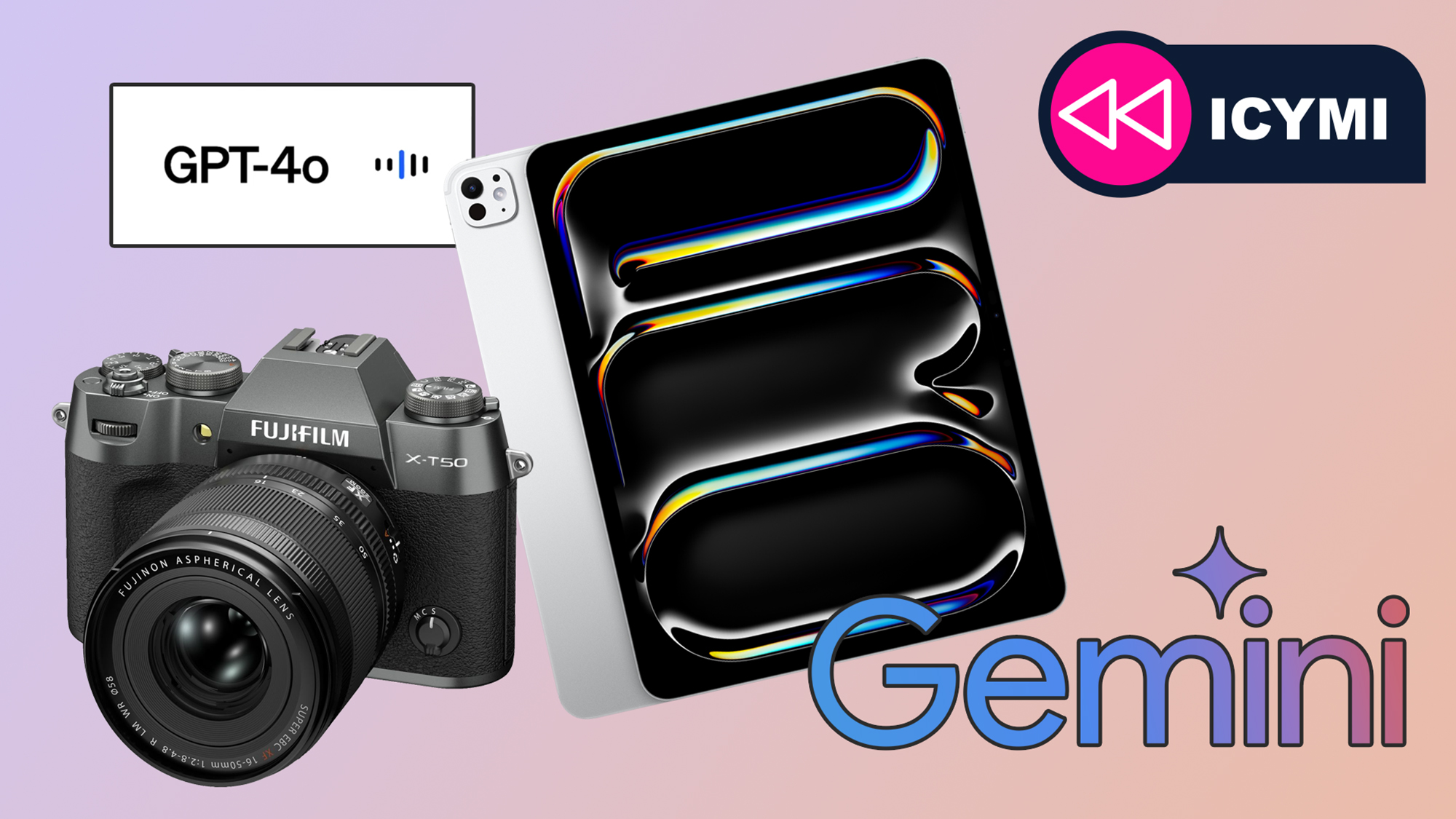
Sign up for breaking news, reviews, opinion, top tech deals, and more.
You are now subscribed
Your newsletter sign-up was successful
We get it: it's not easy to check TechRadar every hour of every day, what with so much else going on. Well, it was a case of blink and you miss it this week – because these past seven days were packed with big stories.
That's where our weekly ICYMI round-up comes in: all the major tech tales of the week, in digested format, for your reading pleasure. You can get caught up in just a few minutes, and then you're ready for the deluge of tech news heading your way next week, too.
It's been another hectic week in tech, what with new iPads to review, the big Google I/O 2024 developer conference, significant upgrades to ChatGPT's AI capabilities, and more than one important teaser trailer from the entertainment world. Let's get started.
7. We reviewed the sensational new iPads
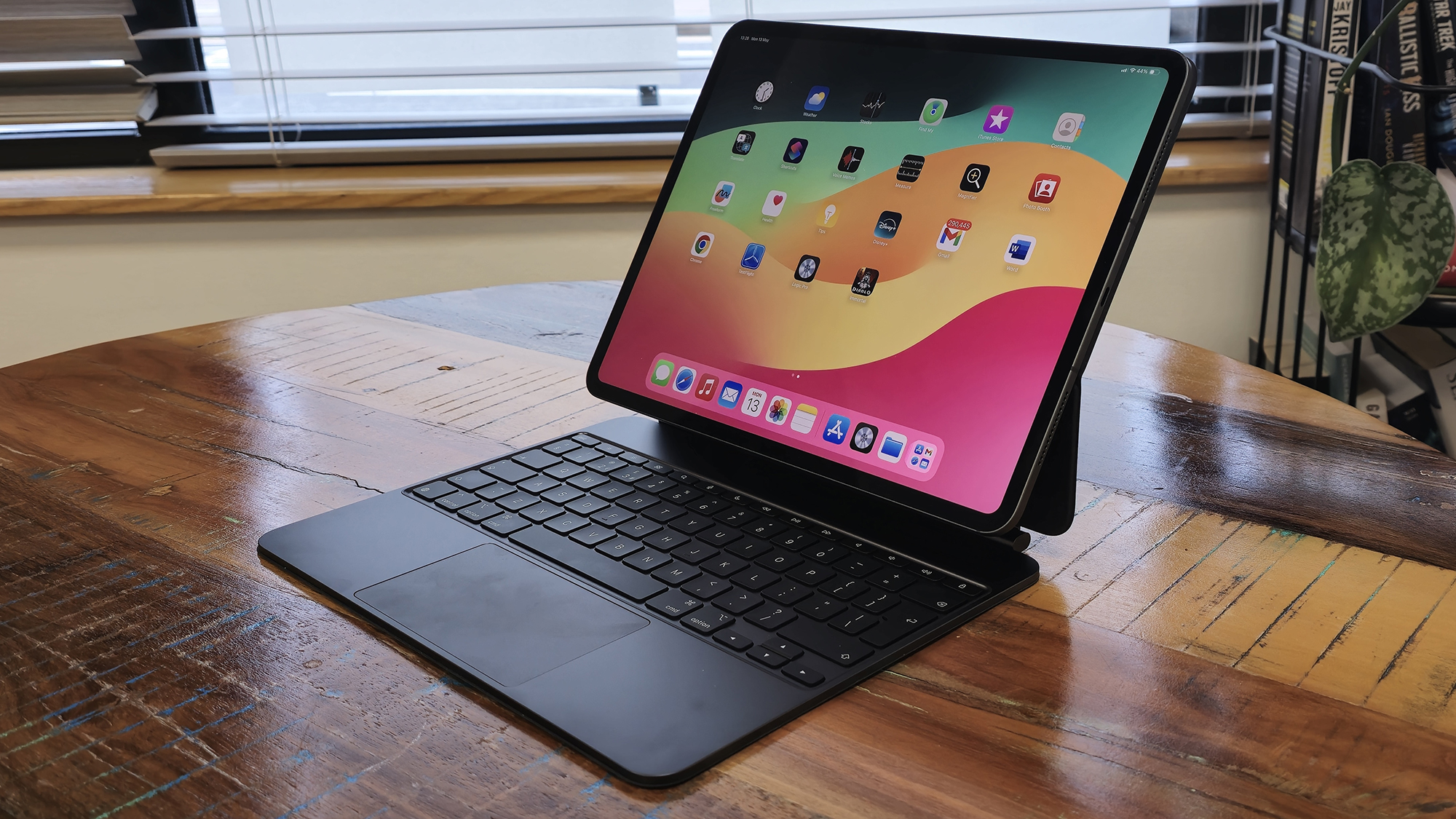
We've been able to get our hands on the new iPad Air 13-inch (2024) and iPad Pro 13-inch (2024), and these are seriously superb tablets from Apple: they both scored 4.5 stars out of 5 from the TechRadar experts, and they live up to the hype that accompanied them at the Apple Let Loose event last week.
It's the first time we've seen the more affordable Air in this larger 13-inch screen size, and we were impressed with that display – as well as with its excellent battery life, and the performance levels possible thanks to the M2 processor under the hood.
As for the Pro model, it jumps all the way to the M4 processor, and is the first iPad we've seen with an OLED display. We described it as an "absolute powerhouse" of a tablet, and it's without a doubt the best one Apple has ever made. Our review will tell you whether or not it's the best Apple tablet for you, too.
- Read more: iPad Air 13-inch (2024) review
- Read more: iPad Pro 13-inch (2024) review
6. Apple pushed out iOS 17.5 – with a serious bug
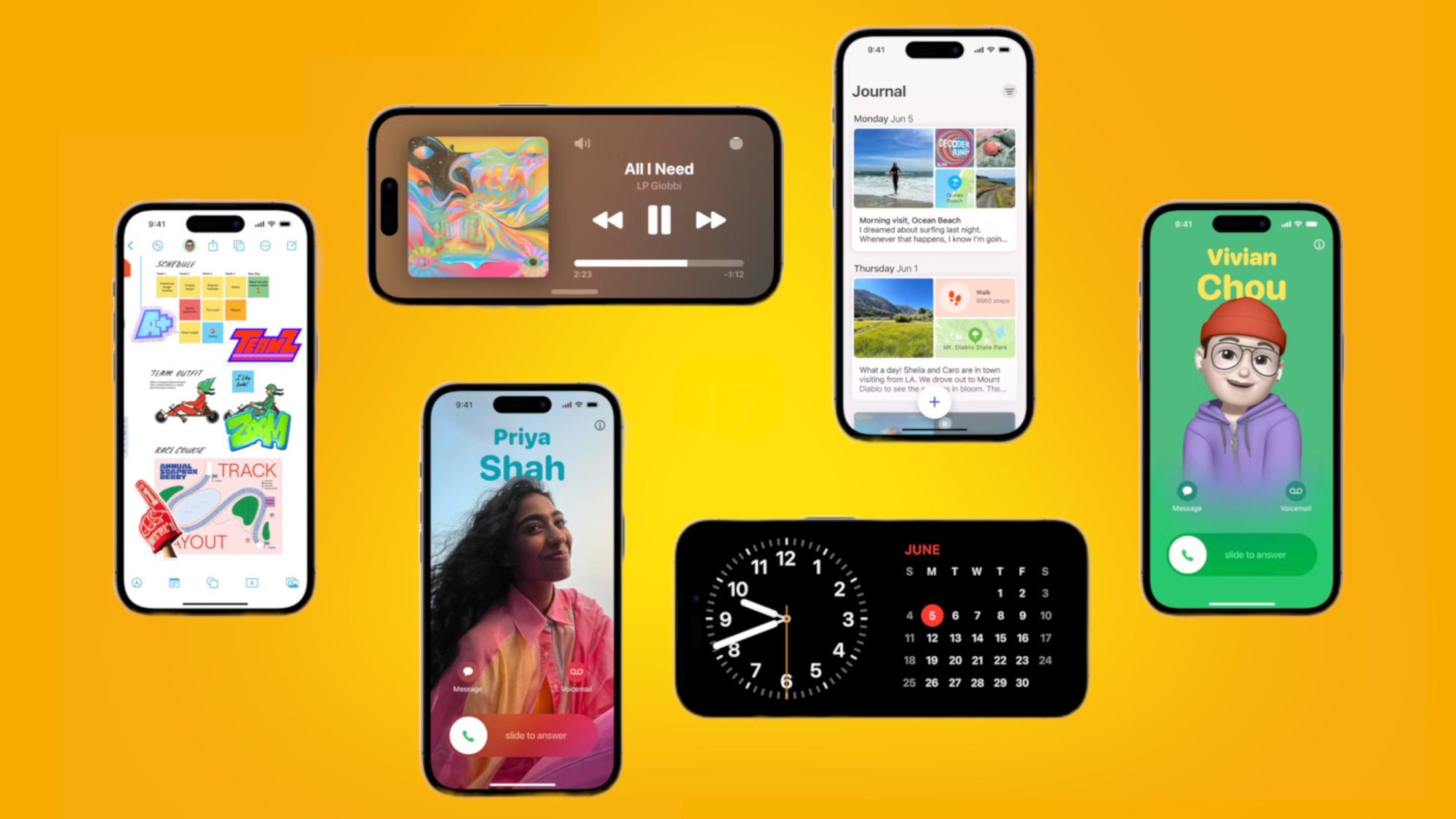
A new version of iOS is always big news, and this week Apple pushed out iOS 17.5 to millions of users worldwide. It was most significant for users in the EU, though – they got access to third-party web app downloads for the first time, as Apple complies with antitrust demands put in place by regulators.
Sign up for breaking news, reviews, opinion, top tech deals, and more.
Other new features, including upgrades to Apple News Plus and better support for third-party device trackers, were available for everyone. There's also a new setting that means you can keep tracking your iPhone even when it's in for repair.
However, the roll out hasn't gone completely smoothly for everyone: some users are reporting they're seeing deleted photos come back from the digital grave. It only seems to be affecting a select group of users running iOS 17.5, but it's a worrying bug, and one that we hope Apple patches soon.
- Read more: iOS 17.5 is out now, with these new features
5. We got the first trailer for The Rings of Power season 2

We were already looking forward to the second season of The Rings of Power even before its first trailer dropped – but the 103-second teaser that landed this week has ratcheted up the expectation levels even higher. It looks like we're set for epic fantasy action and intrigue that surpasses anything in season 1.
At the same time as showing us the first trailer, Amazon also confirmed a release date: The Rings of Power season 2 is going to hit screens from Thursday, August 29. There are just 104 days to wait until we can start bingeing again.
If you need help picking through everything revealed in this trailer, Senior Entertainment Reporter Tom Power has you covered with his detailed Rings of Power season 2 trailer breakdown, which picks apart every scene, look, glimpse, and utterance. Be warned, though: you might want to swerve it if you want to go into the second season completely spoiler-free.
- Read more: The Rings of Power season 2's first trailer
4. Fujifilm launched two ultra-desirable cameras

We were really spoiled in the digital camera department this week, with not one but two excellent Fujifilm models coming our way. In our full Fujifilm X-T50 review, we found it offered more in the way of performance and versatility than we were expecting, considering its X-T30 II predecessor was an entry-level model.
In fact, we awarded the Fujifilm X-T50 just half a star off a full five-star rating, and if you read through our review you'll find out why. This is a camera model that handles itself beautifully, and it of course produces fantastic photos and video.
We also managed to get some hands-on time with the Fujifilm GFX100S II, another camera that gives you a lot of bang for your buck (even if you do have to part with a lot of bucks to get it). TechRadar Cameras Editor Tim Coleman describes it as "probably the best medium-format camera for most people" right now.
- Read more: Our Fujifilm X-T50 review
3. ChatGPT got another major upgrade
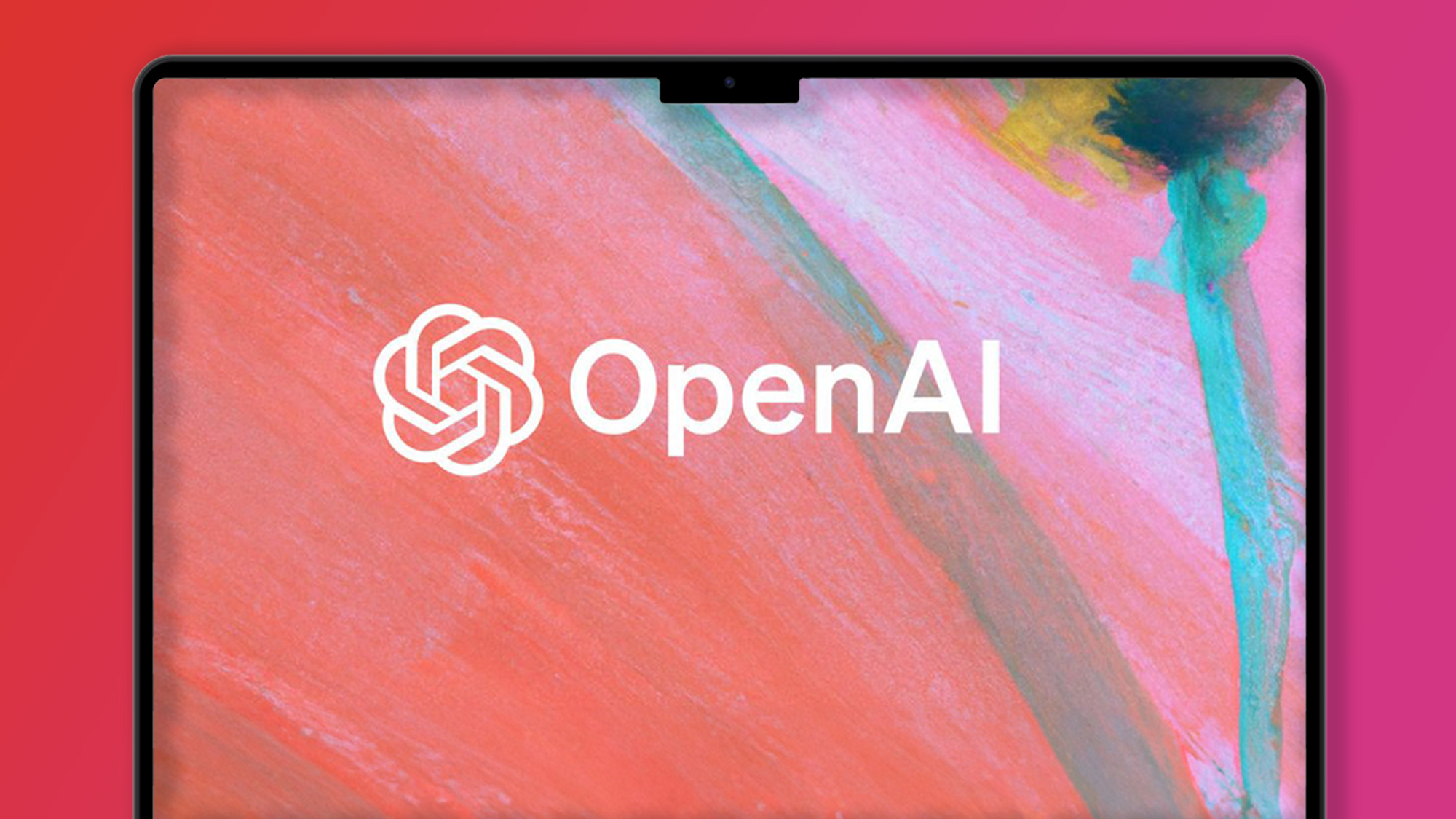
Google had plenty of new AI features and tools to show off this week – of which more in a minute – but OpenAI got in first with some impressive ChatGPT announcements and demos. At the center of it all was the new GPT-4o (or GPT-4 Omni) model, which is a new multimodal engine that's comfortable with audio, vision, and text in real time.
The demonstrations the OpenAI team went through show just how advanced ChatGPT and its AI have become. We're getting very close to the stage of Joaquin Phoenix talking to his AI bot in the movie Her – though we're hoping for a less depressing ending.
These upgrades make ChatGPT less of a chatbot and more of an actual personal assistant you can chat to. There was also news about a desktop app for macOS users (there's no Windows equivalent yet), as well as a refreshed interface and more features for free users (including memory capabilities for the AI).
- Read more: 6 big reveals from OpenAI's Spring Update
2. The ambitious Google Project Astra AI was revealed

Not to be outdone, Google had lots of AI announcements to share at its Google I/O 2024 developer conference this week. One that particularly caught our eye was Project Astra: a multimodal AI engine, like GPT-4o, which is comfortable looking around at the world and handling video and speech inputs.
The idea is you get more natural and context-sensitive responses from your artificially intelligent assistant, and US Mobiles Editor Phil Berne went hands-on with the new technology – finding it impressive, but not fully ready for the masses yet.
The Astra AI is already clever enough to play Pictionary, tell stories, and adapt to new inputs in real time, and it seems perfect for a device like a pair of smart glasses – though to be completely clear, Google didn't say that another version of Google Glass was anywhere in the pipeline.
1. Google pushed the limits of AI at I/O 2024
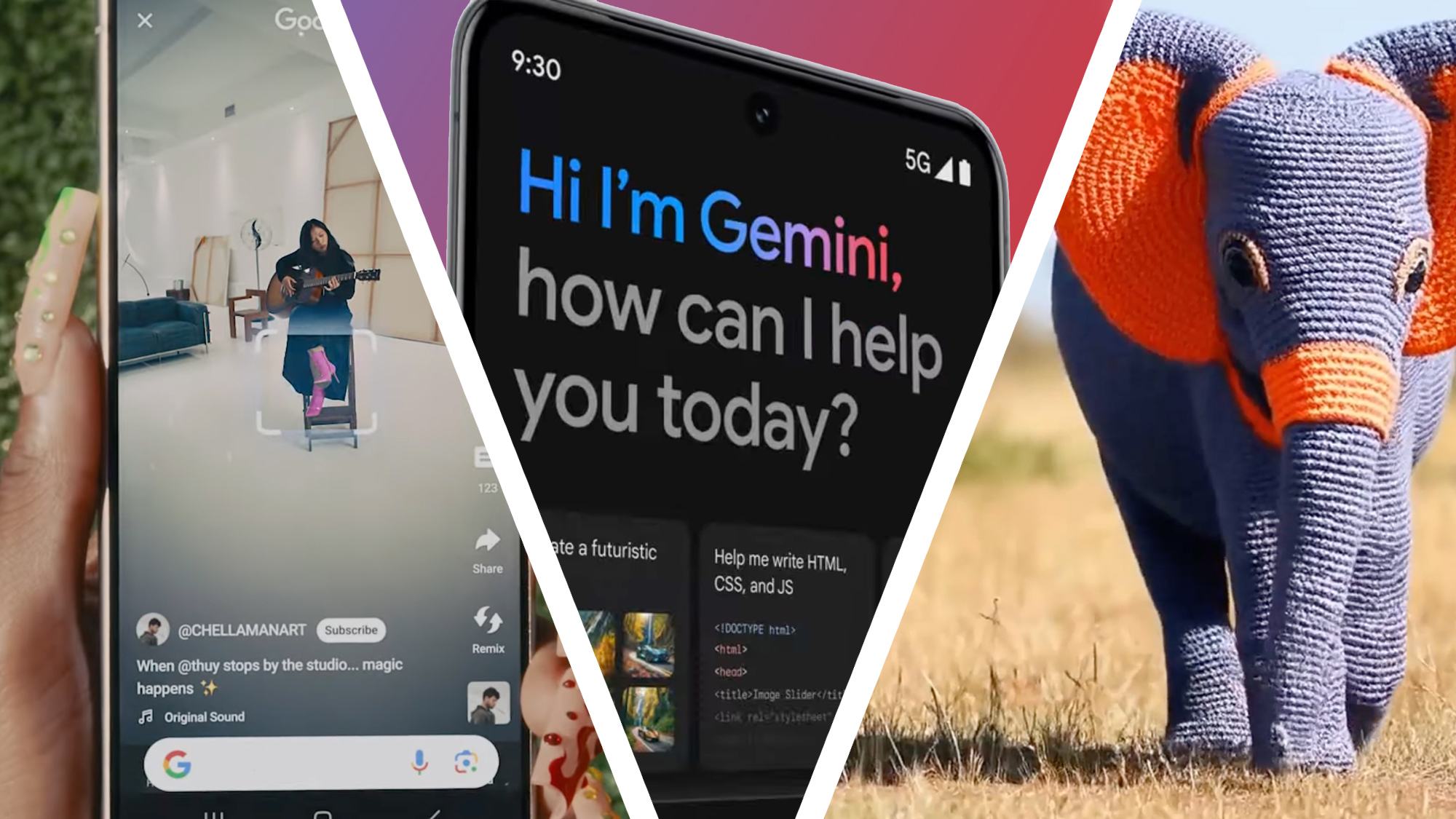
Google had plenty more to share besides Project Astra at Google I/O 2024 this week, and we covered it all live. We had a new video generation tool, fresh AI features for Android, a new AI-powered way to search through your photos and videos, and even bots that can lead you through yoga exercises (we're not sure about that one).
Google's main AI model, Gemini, is set to get a whole host of upgrades over the coming months, so it'll be smarter and more reliable wherever you access it from, and whatever the task you need it to do.
That could be helping kids with their homework, sorting through the files you've got stored in the cloud, or summarizing vast swathes of the web for you. Look out for more of these upgrades reaching more devices over the coming years – including, almost definitely, the rumored Google Pixel 9 phone.
You might also like

Dave is a freelance tech journalist who has been writing about gadgets, apps and the web for more than two decades. Based out of Stockport, England, on TechRadar you'll find him covering news, features and reviews, particularly for phones, tablets and wearables. Working to ensure our breaking news coverage is the best in the business over weekends, David also has bylines at Gizmodo, T3, PopSci and a few other places besides, as well as being many years editing the likes of PC Explorer and The Hardware Handbook.